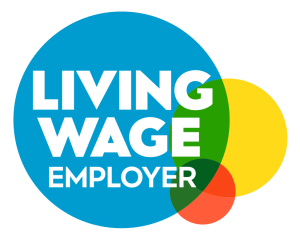Oxford and the legacy of Cecil John Rhodes are inextricably interconnected, we tell our tour guests as we pause outside Oriel College to glance up at the man who looms over High Street, immortalised in stone above the angels and monarchs. Oriel College saw its fair share of the divisive history of diamonds and knowledge when Oxford students exported the Rhodes Must Fall movement to the City of Dreaming Spires in 2016. In South Africa, at the University Currently Known as Rhodes (UCKAR) and later at the University of Cape Town, I thought about but did not anticipate walking beneath that man’s gaze myself, let alone sharing my thoughts on the man with a tour group.
The University of Cape Town is another university upon whom Rhodes’ fortune smiled. While studying there in 2017, I wrote my dissertation about queer femininities in Neo-Burlesque performance, supported albeit financially and indirectly by the legacy of Cecil John Rhodes through the award of a Mandela Rhodes Foundation scholarship. I like to think that my work might have made Rhodes squirm with discomfort, confusion, irritation. I like to think that the presence in the MRF programme of so many complex black women studying all manner of subjects with the support of the MRF might have confounded the man. Closing the circle on history is part of the foundational ideology of the Mandela Rhodes Foundation. I like to think that the logo embodies this. In the logo, Mandela and Rhodes appear in profile in two portraits presented like postage stamps. Rhodes, to the right, looks straight at the viewer in the style of the era in which the portrait was made.
Mandela, shown in profile, faces directly towards Rhodes, as if to say: ‘You are seen.’

In 2003 the Mandela Rhodes Foundation was established to provide scholarships that are open to any young person under the age of thirty from the continent to study an Honours or Masters degree at an institution in South Africa. Tied to the Rhodes Trust, the Mandela Rhodes Foundation (MRF) offers a scholarship covering tuition, living expenses and some conference and travel expenses. The other fork of the programme is a series of development workshops that students undertake throughout the academic year, which in South Africa runs from February to November. In these, the scholars from countries ranging from SA to Rwanda, the Seychelles and Egypt discuss their pasts, their values, their perceptions of one another, and of the combined legacies of the programme. Uncomfortable conversations inevitably arise.
Mandela Rhodes scholars’ discussions of history and privilege dwell on closure, on the incongruity of Mandela’s name beside Rhodes’, their faces appearing side by side on our MRF merchandise. Mandela gets his fair share of critique too. However, in the context of the knowledge economy, we appear to have the moral backing of Mandela’s name and the financial fruit of Rhodes’ legacy. The MRF supports and enables interrogation of this kind. It seeks to develop leadership skills and entrepreneurial spirits in young Africans students, using seed money from the Rhodes Trust to build a financially sturdy Foundation with development its core focus. Mandela Rhodes Scholars are not Rhodes Scholars, though it is perhaps unsurprising that a fair few MRF alumni do go on to become Rhodes Scholars. In Oxford I come across familiar faces and accents from home in unexpected places, coffee shops, the college library, in the Oxford Imps. South Africans abound in Oxford, in my experience more so here than at other UK universities, and our histories are profoundly circular, complex, and confusing. Like the Mandela Rhodes Foundation’s. Like Oxford’s.
Seeking a way to reconcile some of the new questions posed to me by my former scholarship in conversation with my new life in Oxford, I have found Uncomfortable Oxford a natural home to keep asking questions of myself and my privileges, scholarships being amongst these. In Cape Town I learnt to sit with discomfort, to pick at the edges of it, see where it bled, and wait for the poison to eke out. Now, cornered by inquisitive guests during our tours I find that teaching public history in this way allows me a more explorative, narrative approach to the discomfort of my profoundly privileged background. I am required to live in Oxford for three years to complete my DPhil. I cannot live here in perpetual confusion, anger and uncertainty.
The question then is: How can I live in a place that I must, by circumstance, make sufficiently comfortable to call it home, while maintaining a level of discomfort that demands consistent introspection? The answer I’m working on at the moment is: Let’s talk about it.
Written by Chelsea Haith





